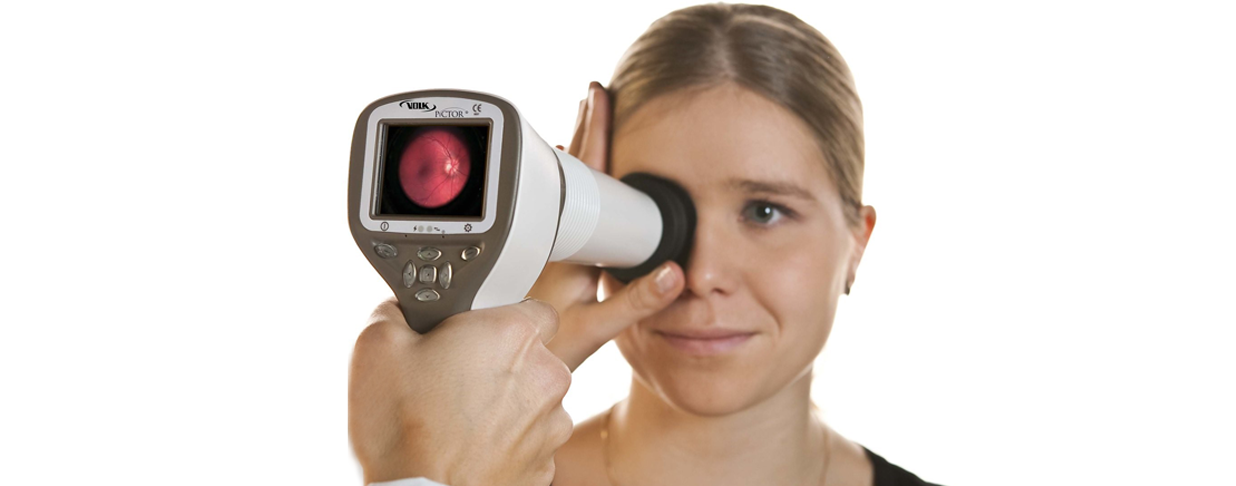When light feels uncomfortably bright, whether due to sunlight, indoor light, or even a bright screen, it can cause discomfort in the eyes—or photophobia.1 That discomfort can lead to squinting, watery eyes or closing the eyes. And prolonged exposure can cause eye fatigue.
Fortunately, plenty of solutions exist to help increase comfort when bright light is unavoidable.
Causes of light sensitivity
While optic nerve disease and other eye issues like glaucoma or dry eyes can be the culprit, light sensitivity can have many triggers:1
- Migraines
- Head trauma
- Dental issues
- Some medications
An eye doctor or primary care physician can help figure out what may be causing photophobia and how to manage it.
Symptoms of light sensitivity
Feeling as though light is too bright isn’t the only symptom of photophobia. People with it can also experience pain or discomfort, eye fatigue, tears or dry eyes, difficulty reading, excessive squinting and seeing bright spots no matter the lighting condition.1
Outdoor light is just one kind of light that can be irritating. A hallmark of light sensitivity is that regular indoor lighting also appears too bright.1 In an office environment, where digital screens and blue light can cause eye fatigue and fluorescent lights can cause headaches, the eyes can feel even more sensitive.2, 3
Managing light sensitivity
Fortunately, there are many ways to protect eyes sensitive to light—and all come with protection against harmful UV rays. Since 50% of UV rays can be absorbed indoors4 and can cause damage to the eye like premature aging, cataracts and age-related macular degeneration,5 it’s important that lenses for sensitive eyes protect against those rays.
Tinted lenses
Like sunglasses, tinted lenses are an obvious choice for outdoor light exposure, but with lighter tints, they can be useful indoors as well. In addition to fitting any style and price range, standard tinted lenses also protect the eyes against UV rays and filter blue-violet light. If light sensitivity is particularly disruptive, consider a tinted lens with a higher intensity—the higher the intensity, the darker the lens, and the better visibility will be.
Polarized lenses
Polarized lenses are a type of sunglasses that offer added protection from reflected glare. Since rain, snow, concrete, wet asphalt and other vehicles on the road can all cause glare—polarized lenses are excellent for driving, walking or any kind of commute. Many polarized lenses sharpen the contrast between colors and allow the eye to see true colors, no matter how bright. And of course, they prevent eye strain and fatigue associated with light sensitivity.6
Photochromic lenses
Also known as Transitions® lenses, these lenses are excellent for people who switch between indoor and outdoor activities. They react to UV rays and some visible light, causing the lenses to tint in reaction to the light around them—clearer indoors and darker outdoors. They also protect against UV rays and filter blue-violet light.
For a complete guide to Transitions® lenses and light management vision solutions, check out the latest videos from LensCrafters® here.
In addition to finding the perfect lens, we recommend wearing hats outdoors, investing in dimmable lights in the home and talking with an eye doctor or primary care physician about ways to alleviate the symptoms.
For more info on light sensitivity and management and how vision benefits can help—contact your EyeMed representative or visit eyemed.com.
•••
1 Moawad, H., MD; “Overview of Photophobia”; Verywell Health; verywellhealth.com; Updated October 24, 2022.
2 Weber, B.; “How to prevent fluorescent light headaches”; Medical News Today; medicalnewstoday.com; May 9, 2023.
3 “How blue light affects your eyes, sleep, and health”; UC Davis Health; health.ucdavis.edu; August 3, 2022.
4 Venosa, A.; “5 Sneaky Ways You’re Being Exposed to the Sun’s UV Rays”; Skin Cancer Foundation; skincancer.org; June 21, 2022.
5 “Protecting your eyes from the sun’s UV light”; National Eye Institute; nei.nih.gov; July 5, 2022.




